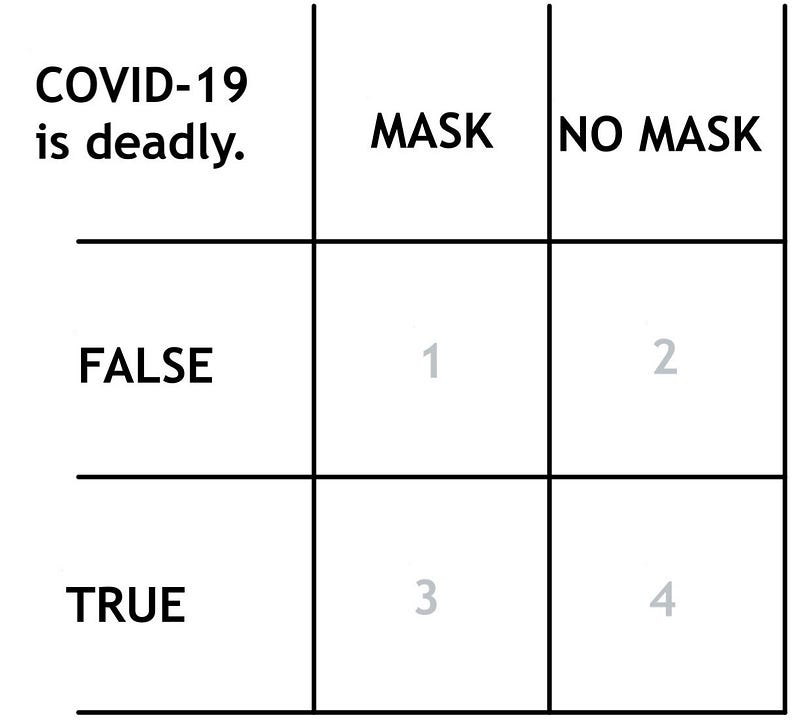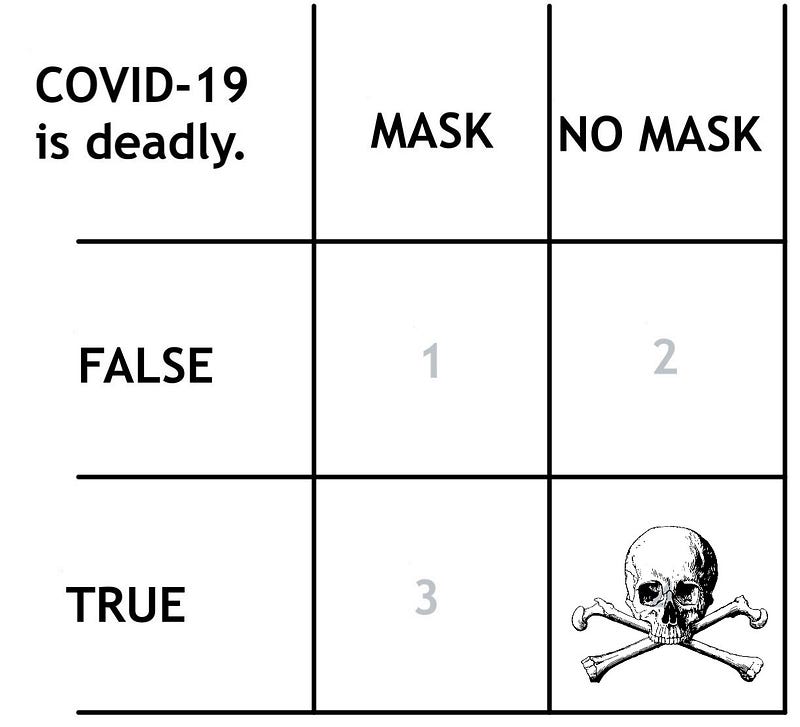Title: Navigating Credibility Challenges During the Covid-19 Crisis
Written on
Chapter 1: Understanding Credibility in a Crisis
During the Covid-19 pandemic, the implications of misinformation and credibility issues can lead to profound anxiety. The harmony we experience in society largely stems from our collective health, strength, and community support.
Recently, the CDC Director emphasized the critical role of masks, suggesting they might be as essential as vaccines. In contrast, the President questioned the Director's understanding of the matter. Who should we trust? The decision becomes binary: to wear a mask or not.
Is it possible to take action without aligning with either perspective? As Covid-19 cases continue to rise, the death toll appears to decline. How do we navigate these credibility crises when the stakes are high? To assist you in making informed decisions, I will share my approach to weighing the risks involved.
Thirteen years ago, I viewed a thought-provoking YouTube video by a teacher advocating for climate action. His reasoning has influenced my perspective, which I will adapt to the current mask debate. Kudos to wonderingmind42 for his insightful methodology.
To begin, create a straightforward grid, resembling a Punnett square familiar to biologists.

Next, establish your hypothesis and possible actions based on the question: Should you don a mask during the pandemic?

Let’s analyze the situation. Is Covid-19 severe enough to necessitate mask-wearing?
Assuming Covid is not deadly and you choose to wear a mask, what are the outcomes? While masks might be uncomfortable and have a cost associated with them, the worst-case scenario here is minor personal inconvenience. You might dislike being told what to do, yet you comply.
On the other hand, if Covid is not deadly and you opt not to wear a mask, life continues normally. Some vulnerable individuals may perish, but the majority of the population remains unaffected, leading to a false sense of security.
Now, consider a more serious scenario. If Covid is indeed lethal and you wear a mask, you contribute to reducing transmission, alleviating the burden on healthcare systems. This proactive measure can lead to lower infection and death rates across the nation, allowing life to gradually return to normalcy. Your choice to wear a mask could save lives, including your own.
Lastly, in the unfortunate event that the virus is deadly and people refuse to wear masks, they will contribute to the spread of the disease. As winter approaches, the virus will likely proliferate indoors, causing a surge in cases and deaths. The economy will suffer due to erratic measures to control the virus, leading to instability in consumer confidence and healthcare systems.
Reflecting on the pandemic's impact, we have outlined our hypothesis regarding Covid-19's deadliness and examined potential outcomes. While the full extent of the virus's threat remains uncertain, we understand the importance of taking personal precautions, such as wearing masks and practicing social distancing.

If we fail to act and the disease proves to have a fatality rate of 1-3%, we could face millions of deaths. This outcome would devastate consumer confidence and could lead to economic collapse, plunging the nation into a deep recession.
The potential consequences of inaction are alarming and illustrate why our collective well-being relies on the strength of our communities. Allowing Covid to spread unchecked would have dire repercussions for us all.
So, wear the mask, even if you disagree with it. The risks are simply too significant to ignore.
Just a thought.
Mitch, September 2020